CRM for e-commerce: everything you need to know
CRM for e-commerce: everything you need to know. Web 2.0 and the spread of the internet brought with them the creation of many new business models. One of these is e-commerce. However, it isn’t only about putting your products on sale on the internet. Today, there are tools and strategic approaches that allow you to get much more out of the internet.
The CRM for e-commerce is one of the great tools that will help you achieve it. Because of this, in the following article, we will show you some ways you can use CRM for e-commerce. Thanks to this you will be able to develop the full potential of your company or products.
What is e-commerce?
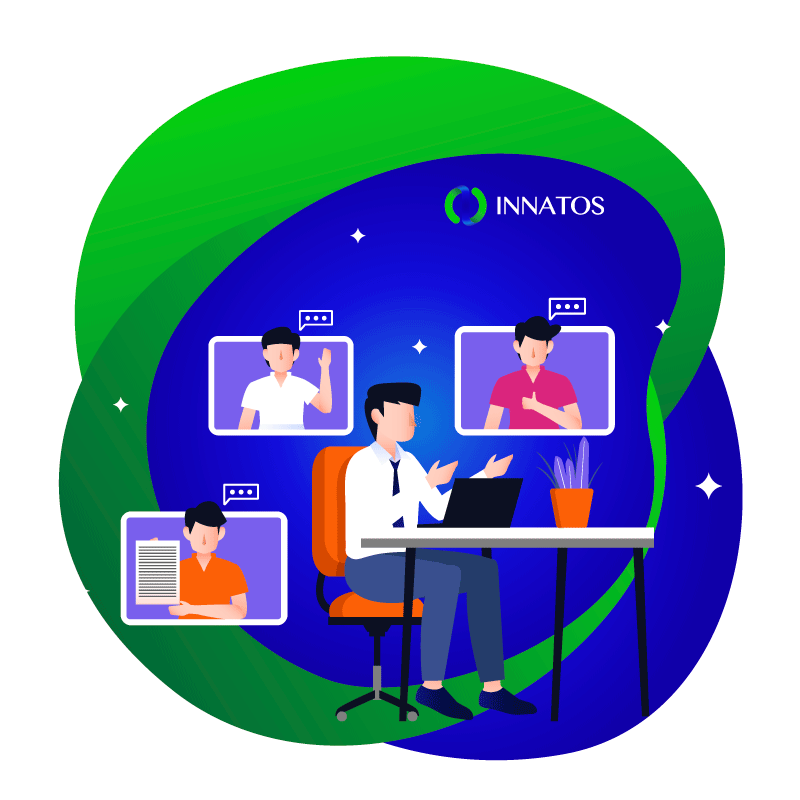 E-Commerce is the natural evolution of commerce, but using the internet as the main portal. It’s a branch that allows brands to reach potential customers around the world. In this sense, tools such as a CRM for e-commerce help companies sell in a smart and optimized way.
E-Commerce is the natural evolution of commerce, but using the internet as the main portal. It’s a branch that allows brands to reach potential customers around the world. In this sense, tools such as a CRM for e-commerce help companies sell in a smart and optimized way.
E-commerce has many formats. The best known are:
Online store:
This is one of the most famous formats. It’s a virtual branch where the products of a brand are sold. Your favorite clothing store likely has one of these.
Marketplace:
This portal allows users to upload their articles and, from there, the market in exchange for a commission.
Subscription:
Users regularly pay an amount of money for a service or product. Many content pages (Patreon, for example) work under this business model.
There may also be hybrid models in which you get a product from a portal that pays a commission. Besides, there’s the attractive option of selling through social media and many other ways. What’s important here is the way how you can take advantage of CRM for e-commerce. It doesn’t matter the format of your business model as long as you grow your company in ways that you hadn’t imagined.
Before continuing, you must understand some points about the CRM for e-commerce. When we refer to a CRM we speak of the Customer Relationship Management. Today, the focus is on the relationship between customers and prospects to make an offer or sale. As a result, this is a vital element to manage your relationship with your target market. Not only that, the CRM for E-Commerce is prepared to accompany you (and also the customer) at each point of the customer journey, as we will see below.
Defining the Customer Journey
The “customer journey” refers to the entire process that the customer goes through to buy one of your products or services. It’s important to define it because it will help you choose those tools and materials you must take into account in your CRM for e-commerce. As a result, you will have the best customer management strategy.
For you, from the perspective of your e-commerce, the customer journey may seem very simple: they arrive, pay, they receive, they leave. However, the entire process is more complex than it looks, especially if you put yourself in the customer’s shoes. This last point is the key that will lead you to success.
Establish each of the critical points at which your customer contacts you. After this, define which actions lead to a positive or negative result until you reach the end of the process. In here, you should include one more point about after-sales service. From there you can track your pain points.
Let’s imagine you have a beauty salon:
In this case, your first point of contact is when a client enters your salon. Two things can happen here. First, and the best case, they request a haircut. Or second, and the worst-case scenario, they don’t request anything and leave. If the latter happens, you must figure out why. For example, ask yourself questions such as why did they leave? Did they wait too long? Was no one there?
On the other hand, if they do request a haircut, we move onto the next point. This is where the hairdresser offers their services. After cutting your client’s hair, they may like the haircut, or they may not. In the last case, ask yourself: was their experience bad? Did they not like the service?
In contrast, if they do like it, they may return to your salon and even better, recommend you to others. If they decide to not do it, consider that maybe they were just passing through, or it was just an urgency. However, also consider the option that they may have wanted to get a makeover, and you didn’t offer it.
In general, this is the phrasing of a customer journey. Now, translating it into a virtual world where there are records of all interactions, you can use the CRM for e-commerce as a perfect tool to establish the customer journey. This way you will be able to identify all pain points and choose their best solutions. Thus, you will avoid tarnishing your products or services high-quality with bad experiences.
The CRM for e-commerce and the holistic vision of the business
One of the great advantages of using CRM for e-commerce is that it will allow you to have a total vision of the workings of your company.
 It often happens, especially in large organizations, that departments seem to each work on their own. Sales aren’t concerned with marketing work, logistics don’t care about the performance of systems and warehouses ignore what finance is doing.
It often happens, especially in large organizations, that departments seem to each work on their own. Sales aren’t concerned with marketing work, logistics don’t care about the performance of systems and warehouses ignore what finance is doing.
By implementing a CRM for e-commerce you will have a much broader perspective on the operation of your company. As a result, you will be able to carry out more accurate and reliable studies than if you look at everything only from the perspective of a department.
Besides, when you think about the customer experience, you are taking into account what’s really important for your business. After all, the customer doesn’t care if the finance department and the IT department work separately. They only want to get the best service for which they paid. By considering it within the parameters that intervene in the company, you will be able to offer the best shopping experience.
Measurements in the CRM for your e-commerce
From the first moment you put a CRM for e-commerce into operation, data begins to be generated:
- Interactions
- Requests
- Prospects.
- Sales opportunities.
- Queries
All these data can be crossed to obtain valuable information. This is because in your system there are records of all the processes the client goes through.
For example, many cosmetic stores place banners on specialized beauty pages. CRM for your e-commerce. Thanks to the implementation of the CRM for e-commerce they can obtain information such as:
- Page from which they come from.
- Prospect location.
- Time spent on the page.
The information increases significantly if the prospect signs up for your online store. This way you can reach them through email or other means (Facebook, WhatsApp, or Twitter).
However, this is just one of the functions of the CRM for e-commerce, as it not only collects information about prospects, it can also help you reach them.
CRM for e-commerce and the tools to reach customers
Information about your audience is valuable, but reaching it is even more so.
A CRM for e-commerce will help you manage your advertising campaigns to sell more using social media and its different advertising programs.
There are powerful tools that will manage your guidelines, help you narrow down your audience, and spread your messages. However, this isn’t all! It will also allow you to segment your promotions and send emails to both prospects and customers.
An email with relevant content, with an attractive promotion aimed at a well-targeted prospect at the right time, is a safe sale. The CRM tools for e-commerce give you information and facilitate the execution. As a result, the only thing you will have to worry about is sending the correct message and having the product in stock.
CRM’s gift of ubiquity for e-commerce
In the beginning, we talked about your e-commerce as a branch open to everyone, remember? But, what happens if you live in the US and your clients visit you during England hours? Well, the CRM for e-commerce allows you to be everywhere at all times.
Thanks to the possibility of scheduling automatic responses and chatbots you can ensure that none of your prospects will feel ignored. There’s nothing worse than arriving at a store to buy something and no one listens to you.
Chatbots use artificial intelligence to guide the prospect through the entire sales, support, or consulting process. On the other hand, automatic responses will help you save valuable time when talking with the customer. This way you will be able to offer an even more attractive shopping experience.
Much more fruitful relationships with the user, CRM for your e-commerce
The buying and selling process always involves negotiation and this, in turn, involves some resistance. Every critical point within the consumer journey can turn into a failed business deal in the blink of an eye: a malfunction of a page script, a late response from a sales team member, misinformation about the product, or the price. Anything can make a sale fail.
By having a CRM for e-commerce you can take care of minimizing the “human possibilities” of losing a prospect. Not only that, the CRM for e-commerce also allows you to learn from your mistakes. This is because it records all interactions which then allows you to study them carefully.
Companies of all sizes can implement a CRM for e-commerce accordingly to its peculiarities. Allow yourself to take your company to another level using the tools that the Internet puts at your fingertips.

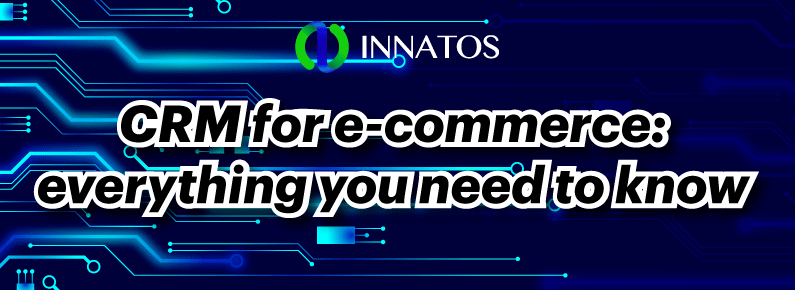

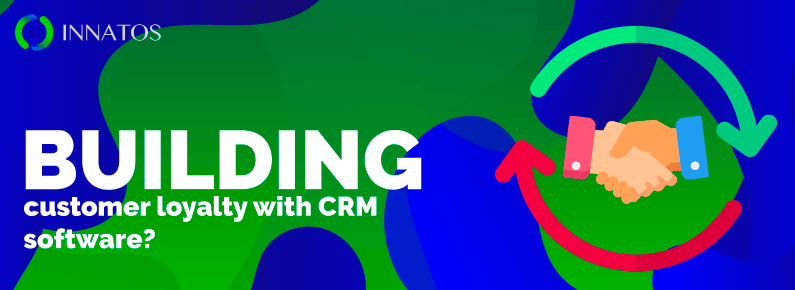
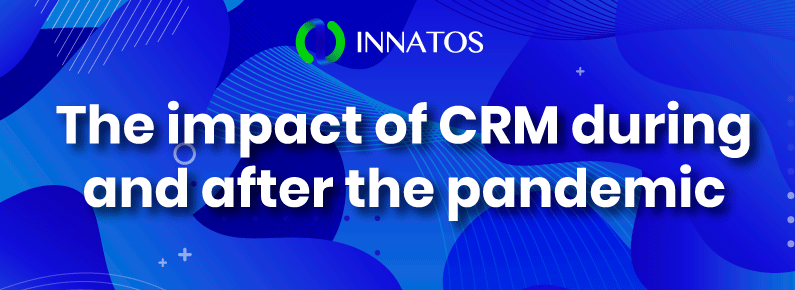
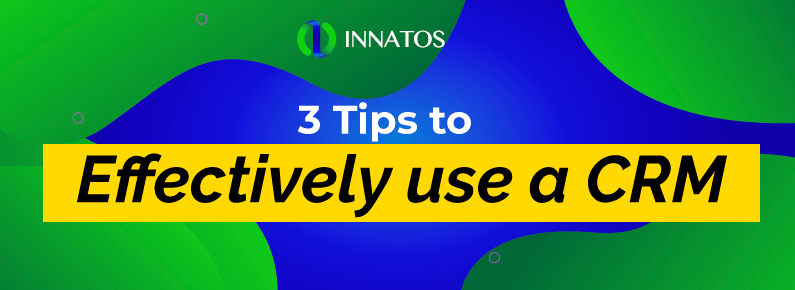



Leave a Reply
Want to join the discussion?Feel free to contribute!